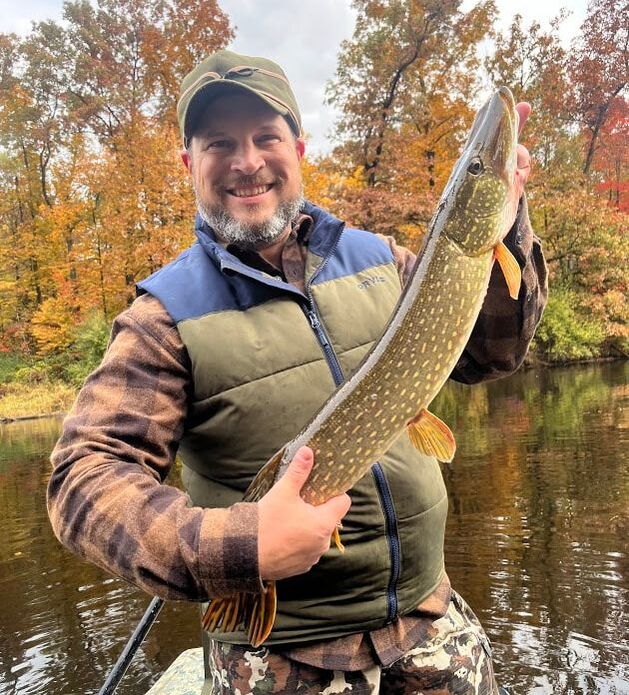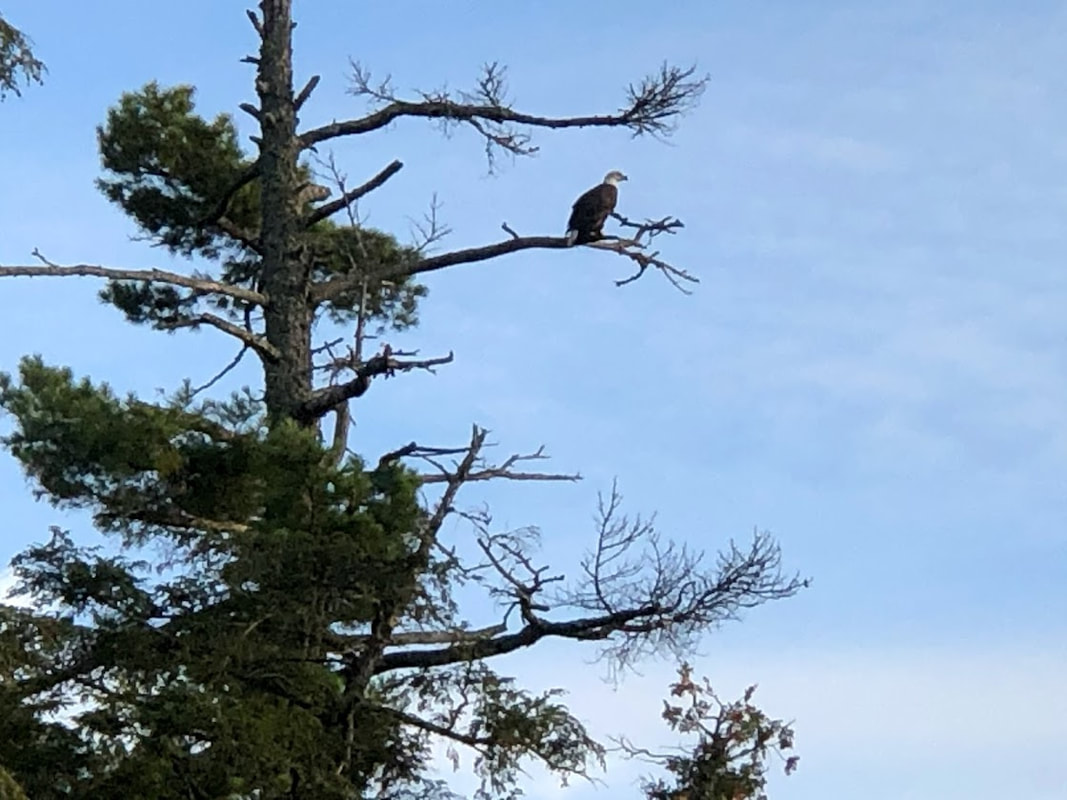|
This article originally appeared in the June 2022 issue of Woods-N-Water News
By Drew YoungeDyke The Recovering America’s Wildlife Act is poised to pass Congress after being advanced by committees in both the U.S. Senate and the U.S. House of Representatives, with over 30 bipartisan cosponsors in the Senate and over 170 in the House. This legislation – which would provide $1.39 billion annually in wildlife restoration funding - would be the biggest conservation bill perhaps since 1937’s Pittman-Robertson Act that directed excise taxes on hunting and shooting equipment to wildlife restoration. It’s sorely needed right now as up to one-third of fish and wildlife species in America are at increased risk for extirpation or extinction, as maintained by each state’s list of Species of Greatest Conservation Need. The Recovering America’s Wildlife Act was co-sponsored in the House by Michigan Rep. Debbie Dingell (D) and Nebraska Rep. John Fortenberry (R), and in the Senate by New Mexico Sen. Martin Heinrich (D) and Missouri Sen. Roy Blunt (R). It has been introduced each term since 2016, but for the first time ever, it has now passed essential committees in each chamber and is ready for a floor vote in each. And it may not get another chance. If the Pittman-Robertson Act was so successful, though, why is a bill like the Recovering America’s Wildlife Act needed now? Some brief conservation history will help to understand. For the first couple hundred years of settler colonial history in the United States, the conservation of fish and wildlife was not a priority. Abundant fish and wildlife populations conserved by Indigenous generations for millennia flourished, but as their lands were taken the wildlife was exploited commercially and reduced to alarmingly low numbers by the early 20th century. Conservationists responded to the wildlife crisis by establishing game laws, conservation departments and commissions, license fees and, finally, in 1937, dedicated funding to restore wildlife populations through the Federal Aid in Wildlife Restoration Act - known as the Pittman-Robertson Act – to direct the excise tax on firearms and equipment to state conservation departments for wildlife restoration. In 1950, Congress passed the Dingell-Johnson Act to apply the same concept to fishing and boating equipment to fund fish conservation. As most hunters and anglers learn in hunter’s safety courses, this funding allowed state conservation departments to hire professional fish and wildlife biologists and fund the restoration of fish and wildlife. Most of that effort was directed at iconic game species like white-tailed deer and wild turkeys. Through a system employing professional biologists to make recommendations on actions like license quotas, bag limits, hunting and fishing regulations, and reintroductions and stocking, fish and game populations thrived, and most still do today. However, many smaller non-game species have not thrived. Their pressures are different. For instance, overhunting was not the cause of decline for monarch butterflies, so game regulations can’t do much to restore them. The pressures on the primarily one-third of American fish and wildlife species on the state Species of Greatest Conservation Need lists are the pressures of American society itself: things like habitat loss, wetland conversion, the effects of pesticides, or invasive species. And funding for wildlife agencies to mitigate these pressures to keep these species off the endangered lists has never been adequate, and certainly not on par with the hunter- and angler- funded conservation efforts for fish and game species. In 1973, Congress passed the Endangered Species Act, but this is an emergency room measure with little to no preventative funding to recover species before they get to that point. Currently, only about $61 million annually is granted to states this purpose, whereas the Association of Fish and Wildlife Agencies estimates that minimally $1.3 billion is needed to match the scale of recovery needs. For years, hunting and angling groups have called for other outdoor recreationists to foot a similar bill to the Pittman-Robertson excise taxes for non-game wildlife conservation – such as a backpack tax - as if we as hunters and anglers haven’t contributed just as much to the decline of non-game species through our daily actions as Americans resulting in habitat loss, wetland conversion, or the use of pesticides. Or that seeing nongame species like common loons or bald eagles isn’t just as valuable to our time outdoors as it is to someone not also trying to catch a fish or shoot a deer. The current wildlife crisis is a whole society crisis, not the sole responsibility of a subset of outdoor recreation users. As such, its solution must match the magnitude of the crisis, as National Wildlife Federation President and CEO Collin O’Mara says. And that’s what the Recovering America’s Wildlife Act does. The Recovering America’s Wildlife Act directs $1.3 billion to state wildlife agencies and $97.5 million to Tribal governments to fund wildlife restoration of species of greatest conservation need. Each state maintains a list of those species and needed recovery actions – often grouped by habitat type – in State Wildlife Action plans, updated every ten years. This act will actually provide the funding to implement those plans, for many states matching or even exceeding what they receive each year from Pittman-Robertson funding. For instance, Michigan would receive over $27 million annually under the Senate version of the Recovering America’s Wildlife Act; this year it received about $31 million from Pittman-Robertson funds. Passage of the Recovering America’s Wildlife Act would almost double Michigan’s federal funding for wildlife restoration. I could argue that the dedicated funding for mostly non-game species will also benefit game species sharing similar habitat – which it will – or that it will mean less has to be spent out of funds raised from hunting licenses or firearms excise taxes for wildlife restoration benefitting nongame species – which it will – but I’m not going to, because that would assume that as hunters and anglers, all we care about is what we can catch or shoot. And I don’t think that’s a very accurate description of our community, and it’s a rare hunter or angler who doesn’t also participate in another form of outdoor recreation. When I fly fish for northern pike up at my family’s Upper Peninsula cottage, seeing the bald eagles soar over the lake and hearing the loons call are as important to my outdoor experience as catching northern pike. When I surf at Sleeping Bear Dunes National Lakeshore, it wouldn’t be complete if I didn’t see a piping plover run along the beach or a monarch butterfly when I hike the dunes. And when I’m sitting against the base of a tree in the November deer woods in a northern Michigan state forest, a visit from a red-headed woodpecker breaks up the monotony of watching the trail below. Wildlife are the animating force of the woods and waters we haunt as outdoorsmen and outdoorswomen, and whether intended for our plate or creel or not, they give life to our experiences. With the Recovering America’s Wildlife Act, we are on the cusp of conservation history, finally dedicating the resources needed to recover America’s full diversity of wildlife, to have the impact on future generations that those legendary conservationists of past generations had on us, like National Wildlife Federation founder Ding Darling, who led the effort to pass Pittman-Robertson Act in 1937. It’s far from a sure thing, though. While it’s the most important wildlife conservation bill in generations, the Recovering America’s Wildlife Act still has to compete with every other issue Americans consider a priority for floor time in both chambers, despite its bipartisan support and the high number of congressional co-sponsors. Only time will tell whether our generation seizes this moment to conserve wildlife, or condemns us for letting the moment – and the wildlife - pass into history. I hope we choose the former. |
AUTHOR
Drew YoungeDyke is an award-winning freelance outdoor writer and a Director of Conservation Partnerships for the National Wildlife Federation, a board member of the Outdoor Writers Association of America, and a member of the Association of Great Lakes Outdoor Writers and the Michigan Outdoor Writers Association.
All posts at Michigan Outside are independent and do not necessarily reflect the views of NWF, Surfrider, OWAA, AGLOW, MOWA, the or any other entity. ARCHIVES
June 2022
SUBJECTS
All
|



 RSS Feed
RSS Feed